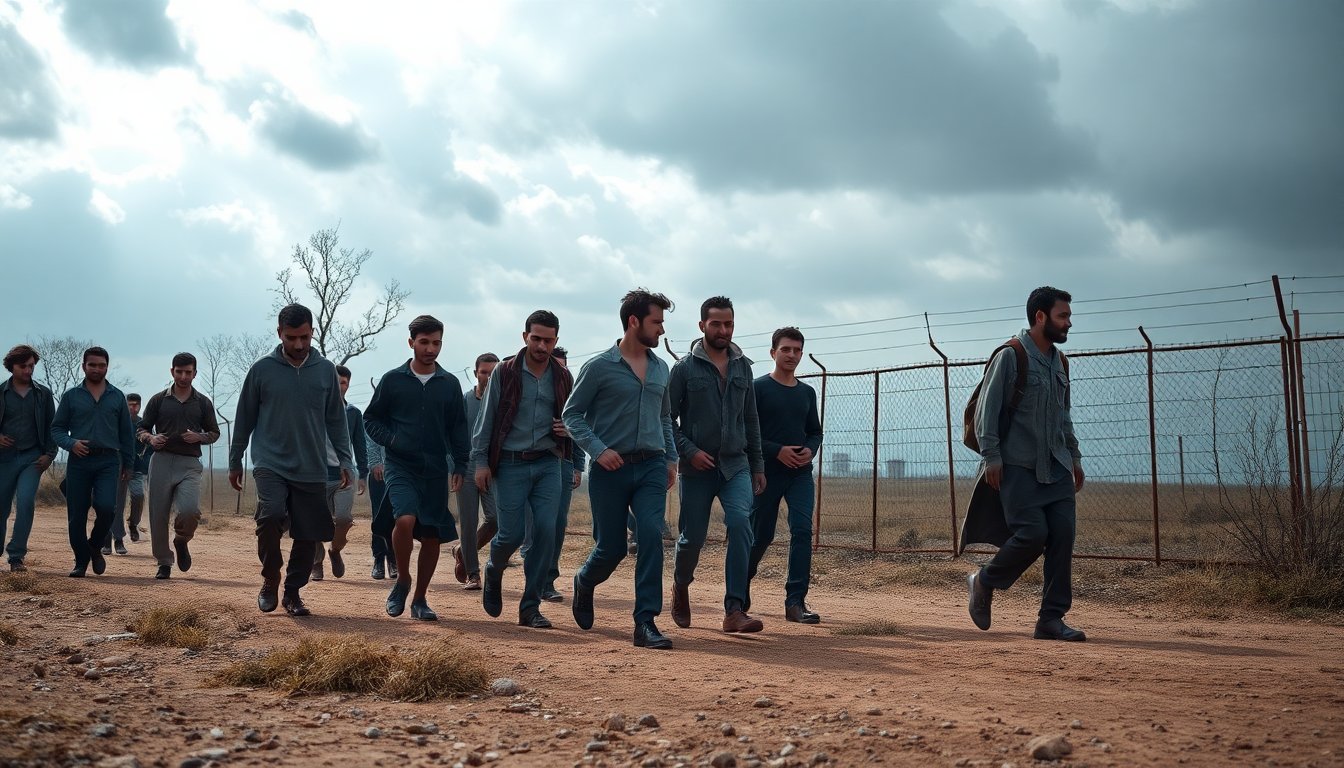Table of Contents
The recent adaptation of Richard Bachman’s (Stephen King’s) novel, The Long Walk, has ignited discussions about its central themes of resilience, friendship, and the stark realities of a dystopian society. Set against a totalitarian backdrop, the film follows a group of 50 young men from diverse backgrounds as they undertake a grueling journey where survival relies on endurance and willpower. This haunting yet poignant narrative resonates with audiences, reflecting the struggles of youth and the quest for identity in a harsh world.
Understanding the Journey of the Characters
At the core of The Long Walk is the relationship between two main characters, Raymond Garranty and Peter McVries, portrayed by Cooper Hoffman and David Jonsson, respectively. Their friendship shines as a beacon of hope amid the desolation surrounding them. As they navigate the physical and emotional challenges of the walk, they forge a bond that emphasizes the importance of companionship in facing adversity.
Another significant character, Stebbins, played by Garrett Wareing, adds depth to the narrative. Initially isolated and driven by a desire to win, Stebbins begins to question the motivations behind the walk as the story unfolds. This transformation illustrates a critical theme in the film: the struggle between individual ambition and the need for connection.
The Societal Commentary Embedded inThe Long Walk
The Long Walk transcends mere survival; it offers a commentary on societal pressures and the brutal realities of competition. The boys are thrust into a system that dehumanizes them, reducing their existence to a mere game for the entertainment of others. This chilling depiction prompts viewers to reflect on societal expectations and the lengths individuals may go to achieve success.
The film also raises questions about the value of life and the costs associated with ambition. As Stebbins grapples with his motivations, he realizes that winning may not justify sacrificing his humanity. This internal conflict serves as a powerful reminder that in the pursuit of success, one must not lose sight of what truly matters—relationships and shared experiences that enrich our lives.
Lessons Learned fromThe Long Walk
The journey depicted in The Long Walk serves as a metaphor for life itself, emphasizing the fleeting nature of each moment. The characters’ experiences compel the audience to appreciate their own relationships and the importance of kindness. Through their trials, we are reminded that while life presents challenges, it also offers opportunities for connection and growth.
Ultimately, the film encapsulates a universal truth: we are all on a long walk from birth to death, and our interactions with others define our journey. The lessons learned from this harrowing experience resonate beyond the screen, encouraging viewers to reflect on their own lives and the beauty found in shared humanity.


